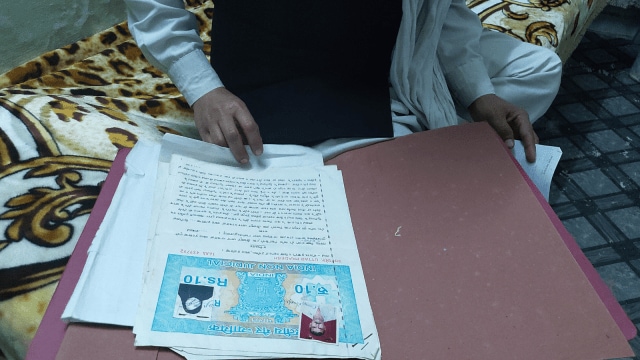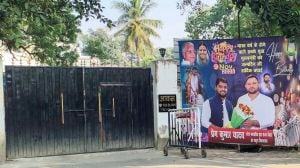‘Protecting life paramount’: HC backs Muslim woman in live-in after verbal divorce
Court directs Amritsar Police to probe threat after woman leaves husband, two kids following a verbal divorce and starts living with a new partner.
 The Punjab & Haryana High Court directed police to protect a live-in couple facing threats, saying they have the right to life and liberty. (Representative image)
The Punjab & Haryana High Court directed police to protect a live-in couple facing threats, saying they have the right to life and liberty. (Representative image) The Punjab and Haryana High Court on Thursday directed the Amritsar Police Commissioner to assess and act on any threat to a live-in couple, including a Muslim woman who says she was given a verbal divorce by her husband before entering a new relationship.
Justice Jasjit Singh Bedi, while disposing of a criminal writ petition (CRWP-11897-2025), held that even if the petitioners “are living in a live-in relationship, they are entitled to the protection of their life and liberty.”
The petition was filed by Ayesha Biwi, 41, who was earlier married to Mohammad Khurshid and has two children from that marriage. Ayesha alleged that her husband pronounced a verbal divorce under Muslim customs and then began threatening her after she started living with another man, the second petitioner in the case. The couple had approached Amritsar police on October 30 seeking protection, fearing backlash from relatives.
Their counsel, advocate Mohit Vashishat, cited earlier High Court rulings affirming the right of couples in live-in relationships to seek protection against threats.
Quoting from a coordinated bench judgment in Pardeep Singh & Anr. vs State of Haryana (2021), Justice Bedi noted that the concept of live-in relationships, once restricted to metropolitan circles, has found social foothold in smaller towns and rural areas. The court observed that while such relationships may conflict with traditional norms, they are neither illegal nor immoral in the eyes of the law.
“The only difference is that the relationship is not universally accepted. Would that make any difference? In my considered opinion, it would not,” the judge observed.
On the dispute over the validity of Ayesha’s alleged verbal divorce, the judge referred to a 2021 Division Bench ruling in Ishrat Bano vs State of Punjab, where the court had upheld police protection despite an incomplete or contested divorce. The emphasis, Justice Bedi said, must remain on safeguarding personal liberty rather than adjudicating marital validity at the protection stage.
Similar protection orders have earlier been granted even where a divorce petition was pending or one partner was still legally married.
The High Court directed the Amritsar Police Commissioner to examine the couple’s representation, assess the threat perception, and take appropriate action in accordance with law. It clarified that the protection order does not prevent future proceedings such as those related to bigamy, custody, or maintenance.
Punjab’s Additional Advocate General did not oppose the limited relief.


- 01
- 02
- 03
- 04
- 05





























